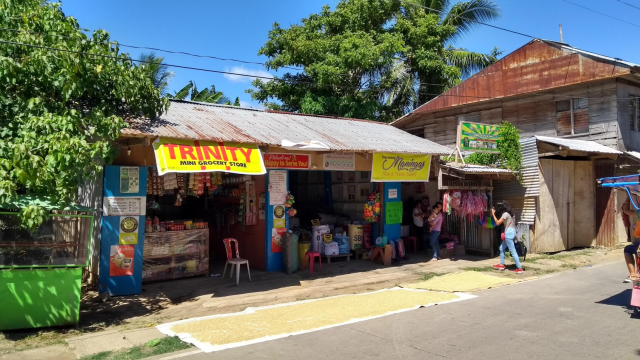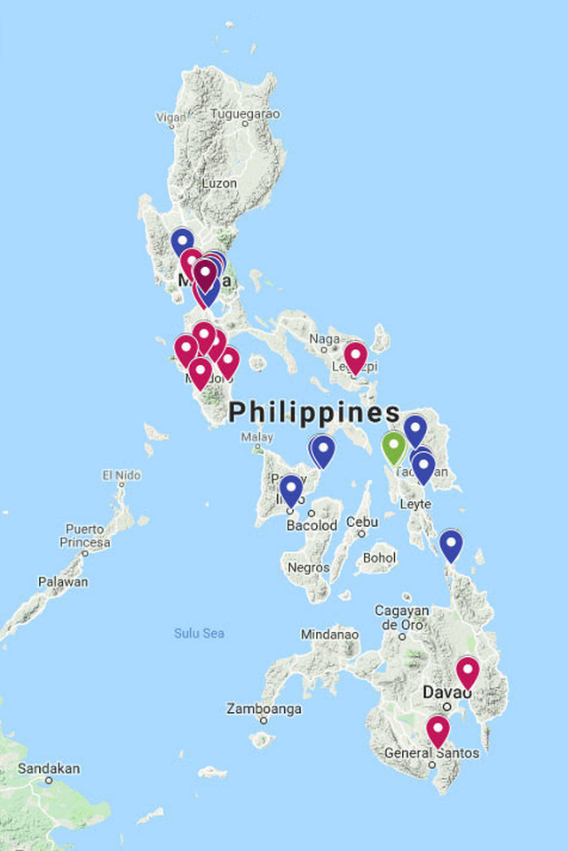Manila is a city of more than 3 million people living in the slums. 80% of these families have no job or live below the poverty line. This hopeless situation has a major impact on the lives of individuals and families (gambling, addiction) and encourages corruption.
The new approach
About 15 years ago, the Bukang Liwayway Foundation (BL), a local organization started w.ith youth work, pre-school care and more. Part of their work was a Livelihood center, with the aim of creating work for people who do not have a daily income. It was engaged in setting up savings groups, Yunik Krafts (handmade products such as cards, wallets) and soap production.
Due to the need to reorganize Livelihood, BL came to the conclusion that their method (production and sales led by development workers) had to be changed in order to help the poor become self-sufficient. That is why it was decided to start a center where people learn how to run their own business, where they are helped to start up their business and where they are coached for a maximum period of 2 years.
Training center in Manila
In 2014, the Missional Business Center Incorporate started in Manila, the capital with its large slums. The purpose of this Business Training Center is to help people in the slums discover their skills and use that to develop products or services that they can sell on the market. They are also taught basic skills related to running a business, so that they can start a healthy business of their own. With a team of trainers and coaches, they teach them the principles of business management and help them put together a solid business plan. Throughout this process, the method and materials of the MBC Foundation in the Netherlands are used, translated into the local languages.
Their approach is unique in guiding the students throughout the entire process: from starting up their business to coaching the new entrepreneur for a period of two years. The ultimate goal of this is to generate income for themselves and their families, along with improving the economic standard of living in the Philippines.


Collaboration with local partner organizations
In the beginning they trained groups in the slums around their office in Manila. But they soon discovered that many organizations recognize the need for this work, but do not have the tools and experience to create stable micro-businesses and/or Livelihood centers. The conclusion was that the experience of the Business Training Center, in collaboration with the organizations working in the field, is a much more effective approach. The capacity and relationships of these partners in the field can be combined with the expertise and training & coaching method of the MBC foundation, to teach people how to use business knowledge, combined with their own skills, to generate a stable income , for themselves, their families and the community.
In this way, partnerships have been established with partner organizations spread across the country. A few examples:
- The organization CCT is active across the continent and provides capital for start-ups, works with savings groups and creates jobs for the poor part of the population.
- In collaboration with PhilRads, businesses have started in 6 villages in Biliran, an island hit by typhoon Yolanda.
- PLTM operates in the hills of Mindoro. Training has been given in Safa, Balani and Calapan.
- The Korean organization Good Neighbors in Quezon City works in Legazpi (Luzon), Samar (Visayas) and Mindanao. Five groups of trainers and coaches have been trained to apply the MBC training & coaching method in their work field.
Financing projects for the underprivileged
The projects in the Philippines are partly financed by international funds. In recent years they have been dependent on local donors and funds to improve the living standards of the poor.